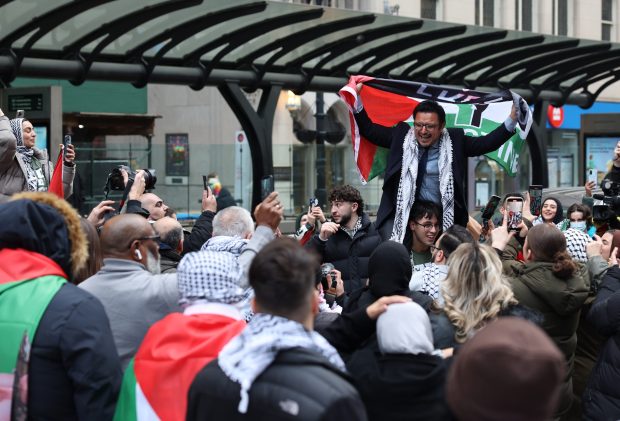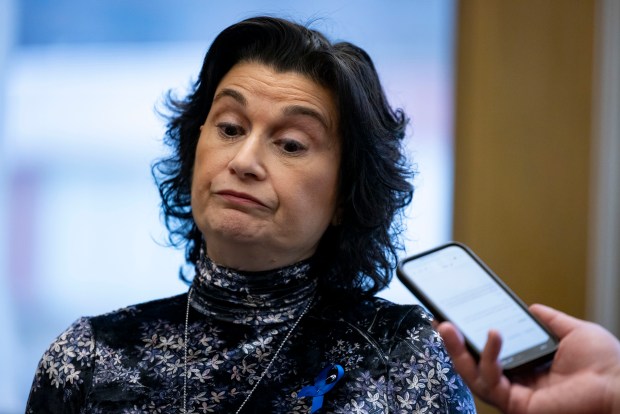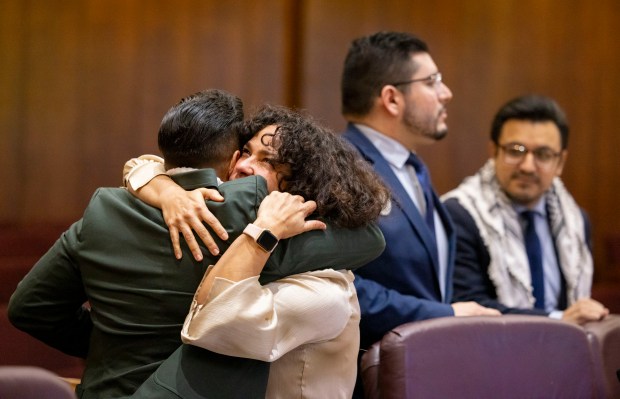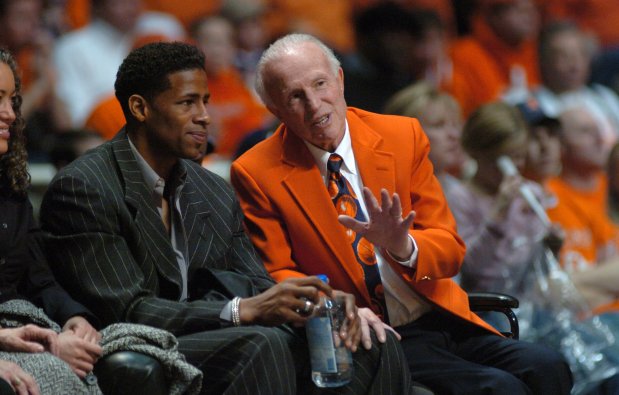Mayor Brandon Johnson was always going to face challenges uniting aldermen in his first term: A billion-dollar budget gap. Pushback against plans for sweeping change. Sharp racial divisions as old as the city itself.
But he could have never expected this.
One year after Hamas’s Oct. 7 attack, that day and the Israeli invasion of Gaza that followed continue to be major points of contention in the Chicago City Council. And as the issue crops up in new ways again and again, the council’s leading pro-Israel and pro-Palestinian aldermen alike see it fueling heightened tensions within the body.
“I think there is definitely a deep divide,” said the council’s lone Jewish member, Ald. Debra Silverstein, 50th.
Silverstein introduced the council’s first response to the Oct. 7 attack just days after it occurred. She proposed a resolution condemning Hamas that passed in a protest-filled special meeting where Johnson cleared out all public spectators to halt noisy disruptions.
But the early effort to react to the violence over 6,000 miles away was hardly the council’s last.
Ald. Rossana Rodriguez-Sanchez, 33rd, was the only “no” vote on Silverstein’s resolution, criticizing it for failing to also center suffering Palestinians. In December, as thousands of pro-Palestinian demonstrators took to downtown streets to protest Israel’s war efforts, Rodriguez-Sanchez pushed her own resolution calling for an immediate cease-fire.
Opponents tried to delay a vote, but the resolution finally — and narrowly — passed in late January. Johnson broke a 23-23 deadlock to make Chicago the largest American city to call for a cease-fire.
Anger has lingered for the members of the council who voted against the symbolic declaration, Rodriguez-Sanchez said. But even with the predictable backlash, doing nothing would have been impossible, she added.
“I deeply believe that genocide is wrong. I believe that solidarity is the absolute most important thing that humans can offer one another,” Rodriguez-Sanchez said. “I just cannot imagine not saying anything.”
Likewise, Silverstein could never have stayed quiet.
“Innocent people were brutally murdered. It was the worst attack on Jewish people since the Holocaust,” she said. “It was important for me to condemn that.”
Silverstein said she has only spoken with the mayor once since his tie-breaker vote. Johnson has isolated the “mainstream” Jewish community, she added.
“I think the mayor has a lot of fences to mend,” Silverstein said.
She joined two Jewish members of the Illinois General Assembly in rejecting an invitation from Johnson to a roundtable on antisemitism in April. In a scathing public letter, the group accused Johnson of showing “disrespect and lack of concern” for their community.
“A true leader should begin by demonstrating a modicum of empathy for the Jewish community,” they wrote. “We have seen none of that.”
Johnson is far from the only elected official in City Hall to catch flak. Ald. Byron Sigcho-Lopez, 25th, faced a censure vote after he spoke in front of an American flag burned moments earlier by a veteran in protest of the federal government’s support of Israel’s military.
The council voted 29-16 to not punish Sigcho-Lopez, a fiery speaker who often wears white sneakers inscribed with “Free Palestine” to City Hall. But when Johnson tried to appoint Sigcho-Lopez to lead the council’s powerful Zoning Committee this summer, the burnt flag remained top of mind for a group of aldermen who successfully thwarted his appointment.

Rodriguez-Sanchez and Silverstein butted heads again in May over a social media post Rodriguez-Sanchez made. On a private account, the alderwoman posted a photo of her child with the caption: “Looking for an anti Zionist pediatrician for this baby.”
And more resignation calls were made in September when social media posts from a top Johnson aide surfaced. Several aldermen blasted Kennedy Bartley, then newly promoted to oversee Johnson’s lobbying efforts, for writing two days after the Oct. 7 attack, “From the river to the sea Palestine will be free. Amen!”
Bartley has since apologized to aldermen.
Silverstein said Bartley also heckled her as the City Council discussed the January cease-fire ordinance. “That’s why we are going to have a little bit of a strained relationship,” Silverstein told the Tribune.
In an interview with WTTW-Ch.11, Bartley denied heckling Silverstein.

Ald. Brendan Reilly, 42nd, got heat just two weeks ago for posting a photo of a pager flashing the words “Mozol Tov” the day after Israel caused thousands of hand-held pagers in Lebanon to explode in an attack on the militant group Hezbollah. The attack killed at least 12 people — including two young children — and wounded thousands more.
Rodriguez-Sanchez called Reilly’s post — apparently made and later deleted on the City Council floor during a meeting — “cruel” and “inhumane.” But she argued that aldermen are still finding ways to work together, despite their massively different viewpoints on the war in Gaza.
“You need to be able to separate your feelings from the concrete work that can be done. Every one of my colleagues represents a vote for any single issue,” she said.
Still, the year filled with deeply personal fights has changed the council, Rodriguez-Sanchez said. There is a deep pool of “vindictive energy” and ever-clearer fractures in the City Council that were present, but harder to see before, she said.
“It has definitely added tension,” Rodriguez-Sanchez said of the Gaza debates. “It is now more than ever in the open, the huge ideological divide in the council.”
Silverstein sees the deepening lines in the council too, she said. Amid the many votes and controversies, she and some aldermen have grown closer and found shared priorities, even as she finds herself opposed to many of Johnson’s current initiatives, she said.
“We built a strong coalition,” she said.
The Associated Press contributed.





